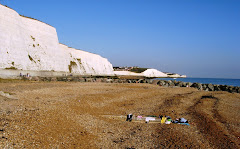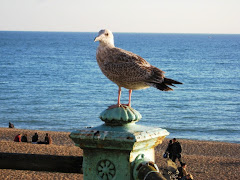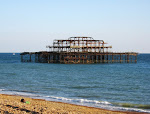One of
One of its most recent appearances was in the docudrama ‘Filth: The Mary Whitehouse Story’, shown last Wednesday on BBC2, portraying the rise of the moral campaigner from the start of her ‘Clean up TV Campaign’ in 1964 to the resignation of Sir Hugh Carleton Greene as the BBC’s Director General in 1969. Perhaps ironically for the institution she spent so much effort criticising, the portrayal (ably played by Julie Walters) was sympathetic, even poignant. Equally ironically, in my view, it managed to caricature Sir Hugh (played by Hugh Bonneville): the Director General credited by many as having shaped the modern BBC came across as vain and self-important, obsessed alternately by attractive secretaries and his determination not to engage Mrs Whitehouse.
But more interesting for me is how the documentary has excited a debate about her legacy in the News media. Rather than simply lampooning Mrs Whitehouse – as would have been the almost automatic response until a decade ago – it has inspired an examination of whether her concerns did, in fact, have substance. All of this comes, of course, against a backdrop of the latest news reports of (yet another) stabbing of a young person.
In newspaper commentaries, Julie Walters is quoted as acknowledging her role in establishing the Nine o’clock watershed and with being one of the first to recognise the evils of child pornography. BBC2’s Newsnight featured a thoughtful and temperate debate entitled ‘Did Mary Whitehouse have a point?’, which featured Roy Hattersley acknowledging that – on the question of violence at least – she was right to alert us to the media’s ability to desensitise society.
But to me, the point best made (and eloquently so by Joan Bakewell in to-day’s Independent) is the differentiation between Mrs Whitehouse’s views on sex and violence. On the former, she was defending a stance which arguably created as many ills as it prevented, and which was simply pure bigotry when it came to subjects such as homosexuality. On the latter, however, her views have been given more credence by the passage of time: although violence in our society has a complex set of causes and effects, the pervasive diet of casual violence incorporated into entertainment, and especially the violent role-play in many of to-day’s video games, cannot be healthy.
And that raises a difficult question about her legacy: in seeking to perpetuate her brand of conservatism, what could be regarded as an almost prophetic message on violence in the media was heavily compromised by her prudishness in other areas. Did she ultimately undermine her own campaign?
Perhaps the time has come for a revisionist history of Mrs Whitehouse...



2 comments:
I too watched all these programmes on Mrs Whitehouse. The drama however ended rather bluntly and skimmed over everything. By doing this a 20 something might have not understood some of the points. They might not have realised who she was!
One point highlighted was that she was unelected in her organisation and to some a threat to freedom of speech.
Post a Comment